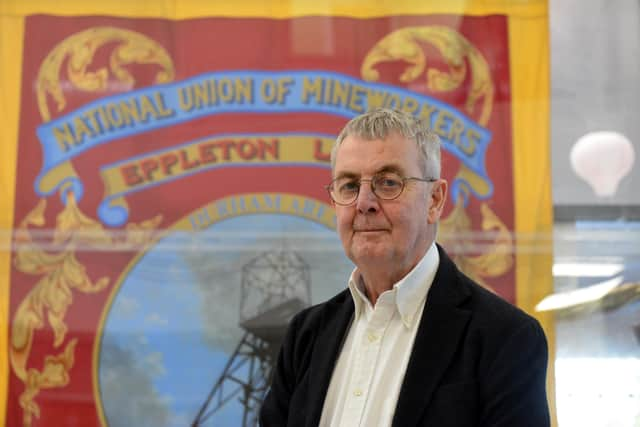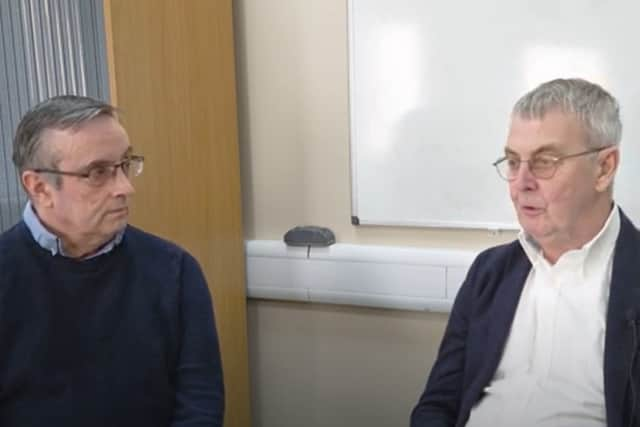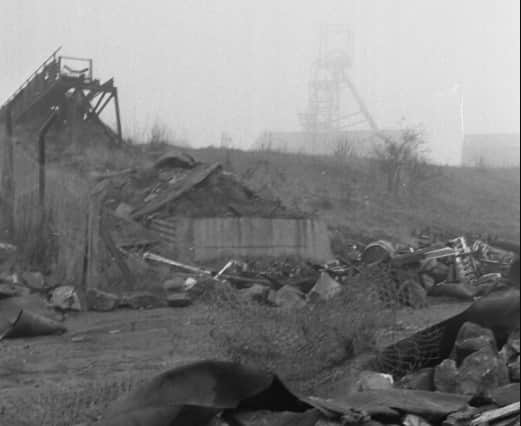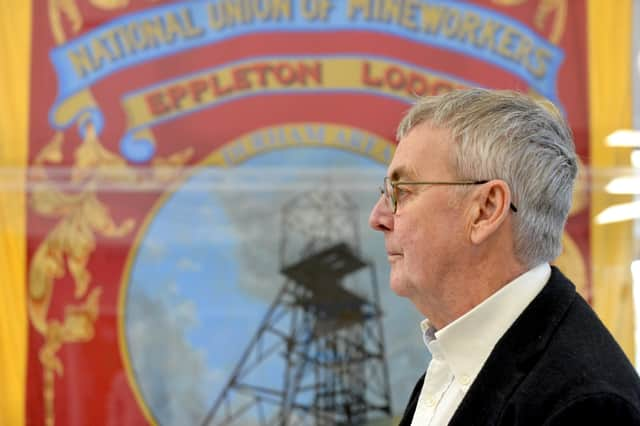'They chose to throw people on the scrapheap' - a Sunderland miner's memories of 1984
and live on Freeview channel 276
A former miner has described the rundown of the pit industry as a 'massive waste of people's lives'.
Charlie Bell, who picketed for almost every day of the 1984 Miners' Strike, spoke to the Echo 40 years on.
Advertisement
Hide AdAdvertisement
Hide Ad

'There were one thousand men on £150 a week. We lost that pretty quickly'
He looked back on a year when the closure of pits, and the loss of jobs, was at the forefront of their minds.
The miners knew what was coming and did their best to stop it through the strike, said Charlie who was one of 1,000 people working at Eppleton Colliery at the time.
'We knew it wasn't over. We were simply going back to work'
He stressed: "We were not looking for a wage rise. We were simply looking to defend jobs and protect communities. This particular community was pretty much dependent on coal mining.


One thousand men were on £150 a week.
Families relied on that wage for mortgages, rent and food. The miners industrial action tried to protect that.
Advertisement
Hide AdAdvertisement
Hide Ad'It almost feels like we were prophets'
Picketing became a part of life in 1984 but that became 'more bitter' as the year went on, said Charlie.


By 1985, the miners returned to their jobs and Charlie said: "In my own mind, I knew it wasn't over. We were simply going back to work.
"We knew it was going to be a struggle because we knew there was a plan to close all the pits down.
"Looking back, it almost feels like we were prophets. We knew what was going to happen but we failed to stop it happening."
Advertisement
Hide AdAdvertisement
Hide AdWithin 10 years, 150,000 miners were 'thrown out of work,' he said, referring to the mass closure of pits.
Skilled people were 'thrown on the scrapheap'
He remains adamant that the strike was the only choice they had to try and stop the colliery closures.


"I dont think we could have done anything else but strike. If we had not, it would have happened over a shorter period of time.
"Eppleton lasted a year after the strike."
A huge effect on the community
The effect on the community in the Hetton area has been massive, he said.
Advertisement
Hide AdAdvertisement
Hide Ad"If you look at the town centre, the shops that we have lost, the clubs we have lost, the pubs we have lost, the banks we have lost, it gives you an indication of the health of the local economy.
"We don't have a bank but we have two betting shops. It is usually an indication of a failing economy."
Charlie reflected on the impact of the loss of the pits in the Durham coalfield.
"Whether you believed in the strike or not, I always thought it was a massive waste of people's lives.
Advertisement
Hide AdAdvertisement
Hide Ad"One of the characteristics that most miners have is a skill, an ability to overcome nature and difficulties.
"Those skills would have been directly transferable into major projects. Road building, rail building, infrastructure projects - and the Government chose just to throw people on the scrapheap."
Comment Guidelines
National World encourages reader discussion on our stories. User feedback, insights and back-and-forth exchanges add a rich layer of context to reporting. Please review our Community Guidelines before commenting.